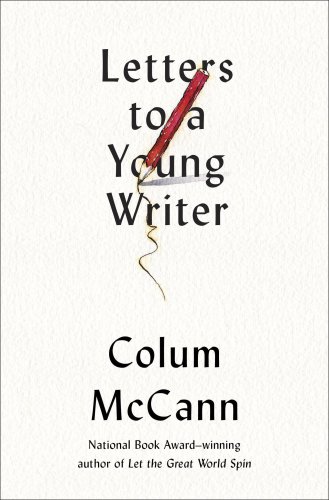
Letters to a Young Writer
Some Practical and Philosophical Advice
کتاب های مرتبط
- اطلاعات
- نقد و بررسی
- دیدگاه کاربران
نقد و بررسی

February 1, 2017
A demonstration of how precision, care, and hard work are the writer's crucial tools.McCann (Creative Writing/Hunter Coll.; Thirteen Ways of Looking, 2015, etc.), winner of a National Book Award and many other honors, draws upon 20 years of teaching to offer more than 50 brief chapters focused on all stages of the writing process. Although intended for beginning writers, the volume would be helpful to experienced writers, as well. Anyone hoping for rules, however, will instead find many lyrical aphorisms. Prose is "as close as you'll get to dancing. Listen to it create itself." As for plot, it must "twist our hearts in some way." McCann sees writing as discovery of one's self and the world: "Don't write what you know, write toward what you want to know. Step out of your skin. Risk yourself." Writing can begin with a philosophical idea or an obsession, but writers should be careful about becoming didactic. "You are not here," writes the author, "to represent cultures or grand philosophies. You don't speak for people, but with people." Those people are invented characters, whom writers must know intimately. Details about motivations, foibles, and eccentricities all contribute to a character's depth and credibility, even if those details do not find their way into the narrative. "What terrifies them? What do they feel most guilty about?" are among questions a writer needs to ask. Writers must read "adventurously. Promiscuously. Unfailingly" to develop an astute awareness of how narrative and sentences are built. Assuming that awareness, McCann tosses out myriad alternatives for writing issues such as structure and plot. Unlike many other writing guides, this one addresses finding an agent and editor and the "shell game" involved in getting a blurb. The author cautions against measuring one's achievements against other writers and, refreshingly, advises, "don't get too attached to the romantic illusions of yourself" and about the writing life. "Being a writer is not about cocaine or the White Horse Tavern." Pithy, wise, and gently encouraging advice from an acclaimed fiction writer.
COPYRIGHT(2017) Kirkus Reviews, ALL RIGHTS RESERVED.

Starred review from March 15, 2017
National Book Award winner and creative writing lecturer McCann (Let the Great World Spin), inspired by 20 years of writing and teaching, riffs on Rainer Maria Rilke's iconic Letters to a Young Poet (1929) like a cultural shaman blotting wounds without causing harm. Books on the writer's craft traditionally cover practicalities--manuscript formatting, time management, obtaining agency representation, etc.--and this muscular collection of essays does, too, but in a voice charged with meaning. The author is generous with useful, hard-won knowledge, but isn't averse to mussing the hair of precious literary myths, warning against digital hijacking of our individual moral compass, the pursuit of convenience over rebellion, and avoidance of confronting despair. If today's writers cannot rally themselves, he argues, outside of society's bullies, dream-killers, and "official" intimidators with blurry agendas, they dishonor literature's living portrait of humanity, and the power of language not only to thrill and enchant but to bear witness and inspire others into honest exploration and--occasionally--transcendence. VERDICT Will appeal to aspiring and professional writers of fiction and nonfiction or readers interested in decoding the perceived mysteries of the creative process.--William Grabowski, McMechen, WV
Copyright 2017 Library Journal, LLC Used with permission.

March 15, 2017
Which young writer wouldn't want to be like McCann (Transatlantic, 2013)? After all, the Irish author has won numerous accolades for his incisive and textured writing, so one assumes that nuggets of wisdom from this established master would be much valued. This slim volume can be digested in one sitting or dipped into as the need for inspiration strikes. With a deliberate nod to the legendary Christopher Hitchens' Letters to a Young Contrarian (2001), the advice here, too, is crackling and sometimes goes against conventionally held beliefs: Don't Write What You Know suggests one chapter. Such occasional forays into the unexpected notwithstanding, most of what McCann dispenses here ( FAIL. FAIL. FAIL. READ, READ, READ ) is nothing a novice writer might not have heard before. Most will also be grateful for his take on the business of writingto MFA or not to MFA, for example, and how to find an agent. McCann's spunky tone occasionally comes across as too smug, but his genuine love for the craft of writingand for his fellow writersshines clearly through.(Reprinted with permission of Booklist, copyright 2017, American Library Association.)

























دیدگاه کاربران